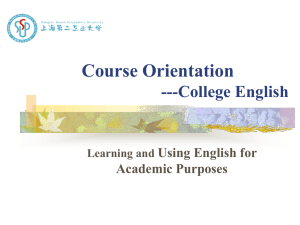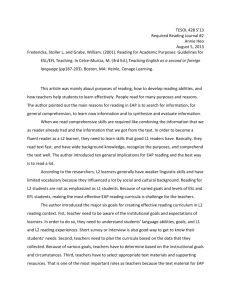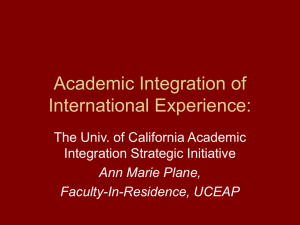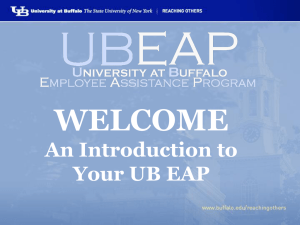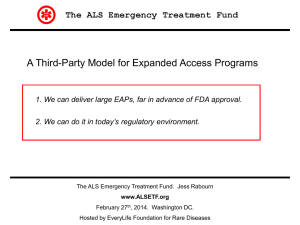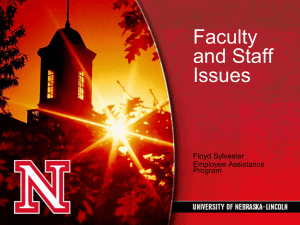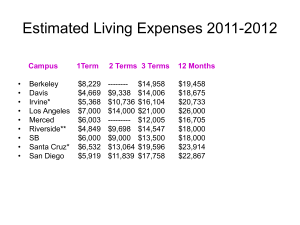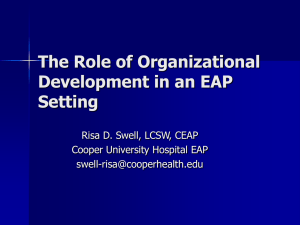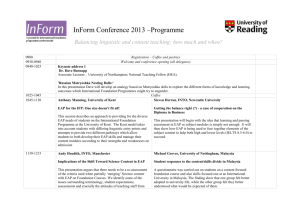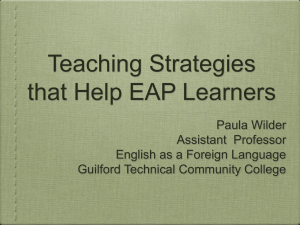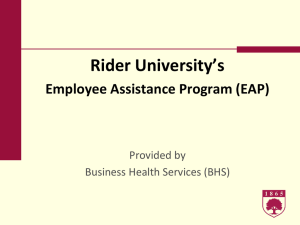NZQA: Assessment resource materials level 3 & 4 - ESOL
advertisement
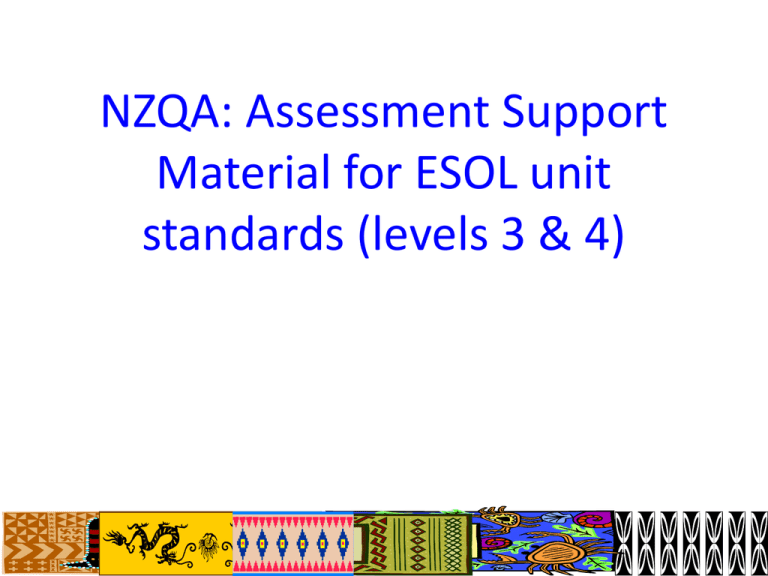
NZQA: Assessment Support Material for ESOL unit standards (levels 3 & 4) Resource development brief • One task per standard • Resources to be designed for use by both secondary and tertiary providers. • Where possible, tasks to be trialled and feedback included from assessors and students • Annotated student exemplars to be provided where appropriate. Guiding principles 1. The assessment materials are accessible to students • Information for students is in student-friendly language. • A checklist is provided to encourage students to monitor progress and reflect on whether they have met the performance criteria. • Annotated exemplars are included on a parallel topic so that students can see exactly how the pcs are met. Guiding principles 2. Assessor guidelines are comprehensive • All special notes are covered. • Possible learning contexts are described. • Links are made to ELIP texts so that teachers can access information on relevant language features. • Assessment schedules are detailed and give clear guidelines on expected evidence and quality/quantity of that evidence. Guiding principles 3. A wide range of topics/contexts are used • Topics link to curriculum areas (secondary) & tertiary contexts. • Topics have relevance to what students are learning. • Wherever possible topics draw on the life experiences of English language learners. Topics include: migration, settlement, learning languages, careers, listening to exam instructions, a job interview, gaining a driving licence, preparing for a marae visit, environmental issues Guiding principles 4. An integrated approach is used • Links are made between receptive and productive skills • Wherever possible similar topics/contexts have been used to link reading & writing standards and listening & speaking standards to ensure the recycling of vocabulary and grammatical structures. Trialling standards • Most level 3 standards and many level 4 standards have been trialled and feedback from assessors & students has been incorporated • Few EAP standards have been trialled. We need the following standards to be trialled: Level 3: 17140; 17362 Level 4: 17369; 17146 & all EAP standards Student exemplars • 3 annotated exemplars: achieved, achieved with merit & achieved with excellence Judgment Not achieved. Comment This learner has produced a text that is largely at the standard. The text addresses the topic and he has met all but one pc. Errors are minor, do not indicate lack of control of text and paragraph structure, vocabulary and language features required by the standard and do not interfere with meaning. However he has not met pc 1.7 as the bibliography does not list resources in alphabetical order using correct layout and punctuation. The learner could be offered a resubmission as he is very close to the required standard. EAP standards • A considerable jump in level from level 3 standards – not for all students The leap between L3 and 4 is massive. I would only use the standard if it becomes part of UE literacy. Feedback from a trial school • The importance of an academic pathway • Needs to be seen as a two year course with a lot of formative work before summative assessment The experience of one trial school 2010 course (Yr 12/13) 2011 course (Yr 12/13) 2.2: Formal writing 2.5: Visual text 2.7: Speech 2.8: Research 12905: Wide reading 2.2 2.5 22891: Deliver an oral presentation… 22750: Write a crafted text… 12905 Rationale for change I was concerned that the achievement standards seemed so detached from where these learners were heading with their tertiary studies. These standards go somewhere in reducing the ‘learning burden’ (Nation, 2001) that confronts second language learners when they arrive at university. Angela Bland, HOD ESOL Riccarton HS Introducing students to an EAP pathway Plant the seed early on – students choose a research focus according to their intended course of study. The following areas emerged: Psychology Hotel Management Computer Science Economics / Small Business Journalism/Media Health and Medicine Astronomy Engineering Aviation Research Questions 1. How does a general hotel manager affect a hotel's success or failure? 2. What are the factors which affect the orchid export business in Thailand? 3. What are the similarities and differences between Germany's and New Zealand's National Park Management systems? 4. What are the solutions to reduce the building damage from an earthquake? 5. What is the role of mass media? 6. What is demand, and what is its impact on society? 7. How does the development of modern technology affect a commercial jet's safety? 8. What are the causes and effects of good body image? 9. How and why did the American's join World War 2? http://faculty.plattsburgh.edu/carla.hendrix/LIB102/QuestionType.htm Courses for 2012 As a result of trialing these EAP standards, we have changed our course title to ‘English for Academic Purposes’. However, we are at cross-roads. Ideally, I feel strongly that we should choose all five EAP standards, but we are in a position where we have to still offer two English Achievement writing standards. These five standards are far more in tune with the future studies and genuine needs of our ESOL learners. There is also the issue of endorsement for NCEA. Students may shy away because they cannot get endorsement. Angela Bland A closer look at two EAP standards • In draft form only • Changes will be made after trialling and editing • Formative units needed to scaffold learning Those interested in trialling standards email: jenniferbedford@xtra.co.nz
